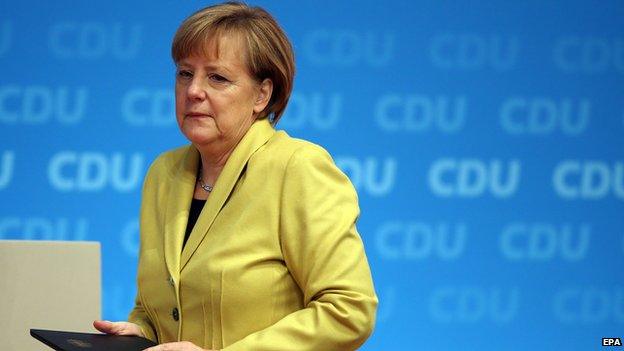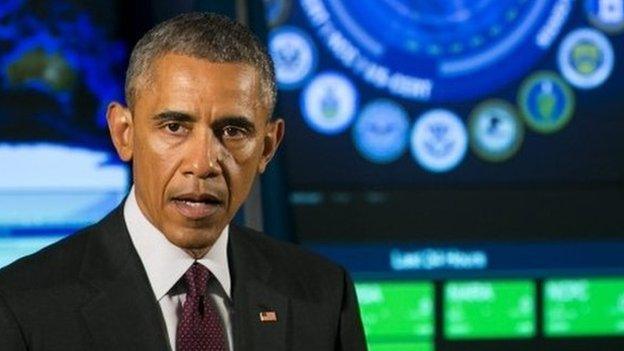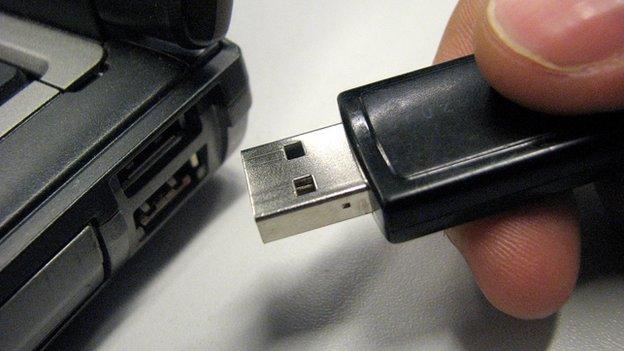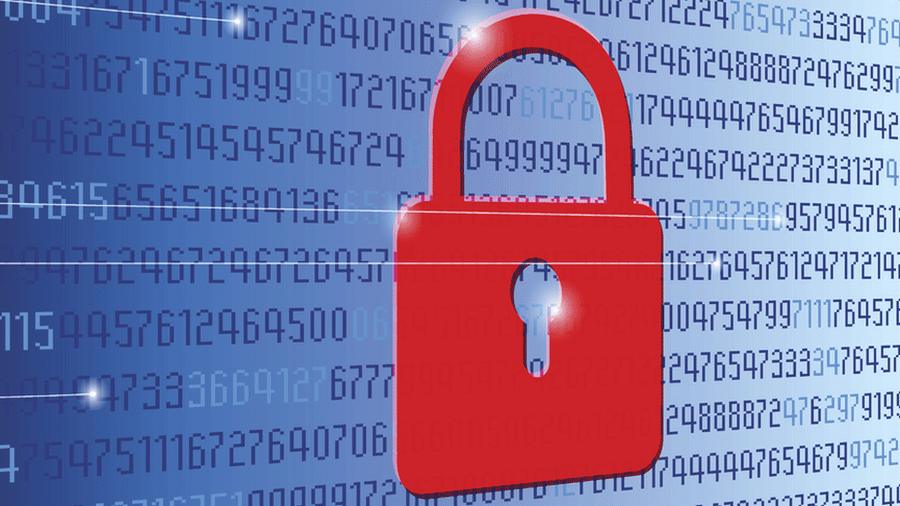Germany's Merkel urges new EU law on data tracking
- Published

Chancellor Merkel previously warned against intrusive data monitoring
German Chancellor Angela Merkel says she will press for new EU rules soon on data retention, to help in the fight against terrorism.
An EU directive on data retention was made invalid by a European Court of Justice (ECJ) ruling last April.
That 2006 directive opened up private communications data to police, but message content was still protected.
Ms Merkel's statement contrasts with the uproar in Germany last year over US mass surveillance of internet traffic.
She was speaking in the lower house of parliament (Bundestag) about measures to prevent attacks like the killing of 17 people in Paris last week by Islamist gunmen.
Besides the ECJ ruling, external, Germany's constitutional court also set out strict legal guidelines in 2010 on data retention.
The revelations by US whistleblower Edward Snowden - now a fugitive in Russia - triggered fresh privacy concerns in Germany last year, when the scale of US eavesdropping on communications became clear.
Ms Merkel, leader of the centre-right Christian Democrats (CDU), said German regional interior ministers had agreed on the need for a legal "minimum period" of data retention, so that suspects' data records could be accessed in police investigations.
"We should exert pressure so that the European Commission's redrafted EU directive, as promised, is presented speedily, so that subsequently it can be adopted as German law too," Ms Merkel told MPs.
However, her coalition partners, the centre-left Social Democrats (SPD), voiced concern about such plans.
SPD Bundestag leader Thomas Oppermann warned against "hasty action" on data retention, saying the lessons of the Paris attacks must first be considered carefully.
The UK is also engaged in heated debate over an updated Communications Data Bill, with the ruling Conservatives and Lib Dems at loggerheads over it.
And US President Barack Obama has unveiled proposals to tighten cyber security laws, after damaging attacks by hackers.
- Published14 January 2015

- Published14 January 2015

- Published8 April 2014

- Published13 January 2015

- Published26 November 2014